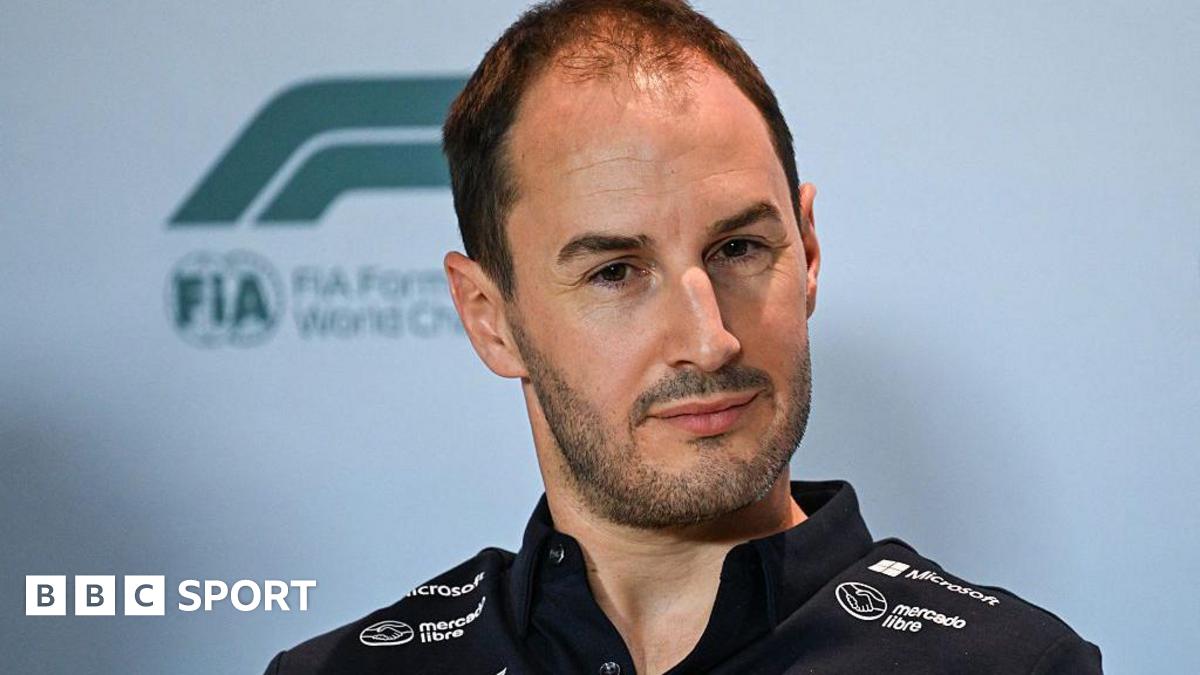The dark side of ambition

Ambition is one of the most defining forces in human affairs—a psychological engine that propels individuals beyond the realm of survival into the arena of creation, disruption, and transformation, and significantly predicts educational attainment, career success, job performance, and income.
At its core, ambition is the refusal to accept the status quo, the internal pressure to stretch personal limits and societal boundaries. In a way, the best way to understand ambition is as the inability to be satisfied with one’s accomplishments. Ambition fuels leadership by pushing individuals to take responsibility, imagine alternatives, and mobilize others toward a vision. Ambition underwrites entrepreneurship as the catalyst for risk-taking, persistence, and the stubborn belief that a better way is not only possible but necessary. Without ambition, innovation stalls; with it, people challenge orthodoxy, break conventions, and solve problems that others resign to fate. Across disciplines, from science to art to politics, history’s breakthroughs are seldom the product of complacency—they are the residue of restless, ambitious minds.
The world, to a large extent, is the output of ambitious people. It is shaped by those who couldn’t sit still, who weren’t content with inherited limitations, and who felt compelled to act on their ideas, no matter how unlikely or unpopular. From the first controlled fire to the latest generative AI models, progress has never been evenly distributed—it has been driven by individuals and groups with an outsized appetite to leave a mark. Ambition transforms dissatisfaction into momentum, and imagination into infrastructure. It explains not just who rises to lead or invent, but why civilizations expand, technologies leap forward, and cultures evolve. While it must be tempered by ethics and collective concern, ambition remains an irreplaceable force in the story of human progress.
Everything in moderation
And yet, like all powerful traits, ambition is best expressed in moderation. Too little, and individuals drift—untethered from purpose, passive in the face of opportunity. Too much, and ambition can metastasize into obsession, crowding out humility, collaboration, and even moral judgment. When ambition becomes unbounded, it stops serving the individual and begins demanding sacrifice—of relationships, values, and long-term well-being. It can distort self-perception, encouraging people to see themselves not as contributors to a shared cause, but as lone heroes in a zero-sum contest. Teams suffer when ambition eclipses empathy: the pursuit of personal achievement starts to undermine trust, cooperation, and psychological safety. A competitive drive that ignores others’ needs doesn’t just alienate colleagues—it weakens the very foundation of high-functioning organizations.
Unchecked ambition often bleeds into greed, an insatiable hunger not just to succeed, but to dominate. As Gordon Gekko infamously said, “Greed is good”—a provocative mantra for the high-octane world of finance, but a dangerous philosophy when applied indiscriminately. Greed erodes the social contract. It justifies exploitation, tolerates unethical shortcuts, and treats people as a means to an end. In leadership, this can result in toxic cultures, short-term thinking, and spectacular failures. Companies driven solely by ambition without constraint may grow fast, but they often implode faster—toppling under the weight of hubris, burnout, and scandal.
The WeWork Case
Adam Neumann, cofounder and former CEO of WeWork, is a textbook example of how unbridled ambition can lead to spectacular collapse. Neumann started with a compelling vision: to “elevate the world’s consciousness” through a coworking space company that promised to redefine the way people live and work. His charisma and relentless ambition helped WeWork grow at breakneck speed, attracting billions in venture capital and inflating its valuation to nearly $47 billion at its peak. But Neumann’s ambition quickly outpaced operational reality. He expanded into housing (WeLive), education (WeGrow), and other ventures with little strategic coherence. Reports surfaced of erratic behavior, conflicts of interest, and a corporate culture driven more by Neumann’s personal mythos than sound governance.
In 2019, when WeWork attempted to go public, its financial inconsistencies and Neumann’s questionable leadership style came under scrutiny. The IPO failed, Neumann was forced to resign, and the company’s valuation plummeted. His ambition wasn’t the problem in itself—it was that it became delusional, detached from execution, and ultimately corrosive to the company’s sustainability. Neumann exemplifies how visionary drive, without discipline or humility, can become a liability rather than an asset.
In short, the healthiest ambition is grounded in purpose, tempered by self-awareness, and balanced by a commitment to collective success. It lifts everyone, not just the one climbing the fastest.
So, while it’s generally better to have than to lack ambition, here are three proven ways in which an excess of drive or motivation can harm your career and negatively impact others.
1. Ambition can inhibit people’s prosocial drive
When the desire to “get ahead” outweighs the instinct to “get along,” ambition can corrode social cohesion. In team environments, overly ambitious individuals may hoard credit, prioritize visibility over contribution, and treat colleagues as competitors rather than collaborators. This undermines trust and psychological safety—two bedrocks of effective teamwork. For example, a rising executive who constantly angles for the spotlight may alienate peers and demoralize subordinates, even if their individual output is impressive. Over time, the cost of such interpersonal friction outweighs the benefits of raw performance. In the long run, organizations thrive not on lone stars but on networks of mutual respect and cooperation—both of which ambition can quietly erode if left unchecked.
2. Ambition can amplify antisocial traits like narcissism, aggression, and entitlement
While a healthy dose of drive can motivate people to aim high, excessive ambition can inflate the ego and distort moral reasoning. Narcissistic leaders, for instance, often begin their ascent with impressive confidence and vision—but as their ambition grows, so does their sense of superiority and disregard for others. This can lead to toxic behaviors like manipulation, bullying, or a refusal to accept criticism. Take the case of Elizabeth Holmes and Theranos: her ambition to revolutionize healthcare was laudable, but her unwillingness to admit failure or accept limits led to deception and collapse. When ambition aligns with antisocial traits, it stops being a virtue and becomes a liability—both for the individual and the system they’re part of.
3. Ambition can harm personal relationships, wellbeing, and life outside work
Ambition often demands trade-offs, but when those trade-offs become sacrifices, the consequences can be severe. People driven by intense professional goals may neglect family, friends, and self-care—believing that success justifies the costs.
This mindset is especially common in high-stakes environments like consulting, finance, or tech startups, where long hours and relentless competition are normalized. Over time, the neglect accumulates: relationships fray, health deteriorates, and a creeping sense of emptiness can set in—even after major achievements. A partner who misses birthdays for business trips or skips vacations for product launches may eventually find the corner office far lonelier than expected. True success requires integration, not imbalance—something ambition doesn’t always encourage.
Research consistently shows that moderate levels of ambition—as opposed to extremely high or low levels—are most beneficial for long-term well-being, work-life balance, and sustainable career success. In the famous words of Seneca, “It is not the man who has too little, but the man who craves more, that is poor.”
A more sustainable strategy
Indeed, people with a healthy dose of ambition tend to have clear goals, a sense of purpose, and enough drive to stay engaged and motivated. But unlike the hyper-ambitious, they are less likely to sacrifice personal relationships, sleep, or mental health in pursuit of constant advancement. They are also more likely to value balance, practice self-care, and define success in broader terms than just titles or paychecks. This makes them not only happier individuals but often better colleagues and leaders.
Moderately ambitious individuals are also more likely to stay grounded in reality. They can be ambitious without being delusional, motivated without being obsessive, and confident without being overbearing. As a result, they tend to make better long-term decisions—for themselves and others. Rather than chasing every opportunity or competing with everyone around them, they focus on meaningful progress, both professionally and personally. In a world that often glamorizes extreme ambition, it’s worth remembering that the good life is rarely lived on the edge of burnout—and that sometimes, aiming for enough is the smartest and most sustainable strategy of all.
It is also clear that de-emphasizing ambition—or the importance we give to it—could help in many areas of life, including business. For example:
1. We tend to overrate ambition, especially when selecting leaders
In many organizations, leadership potential is judged through the lens of visibility, assertiveness, and a hunger for advancement—classic signals of ambition. We rarely pause to ask whether that ambition serves the group, or merely the individual. As a result, we often confuse confidence for competence, and ambition for ability. Research consistently shows that traits like humility, integrity, and emotional intelligence are more predictive of effective leadership than raw drive or self-promotion. Yet job interviews and promotion processes still reward those who “lean in,” speak up, and outperform peers—often selecting the loudest rather than the wisest. This opens the door to narcissistic leaders who crave power for its own sake. As Plato warned, “a person who wants to govern should not.”
2. Ambition is frequently mistaken for talent, even in roles that demand competence over charisma
Think of professions where precision, reliability, and expertise are paramount—pilots, surgeons, financial advisers. In these roles, would you rather entrust your life or money to someone highly ambitious, or someone quietly excellent? In reality, you often can’t have both. The most ambitious professionals may focus more on personal brand-building and career climbing than on mastering their craft. Yet our hiring and evaluation systems tend to reward the ambitious candidate: the confident speaker, the impressive résumé, the person with a five-year plan to reach the top. This obsession with upward momentum blinds us to quiet competence. Ironically, many of the best performers are not those obsessed with “being someone,” but with doing something well.
3. Finally, ambition is often directed at the wrong goals—those that serve ego more than others
Many high achievers are not driven to make things better, but to be seen as better than others. Their goals are status-enhancing, not impact-driven: more power, more wealth, more recognition. This kind of ambition justifies any means—cutting corners, sidelining colleagues, or exploiting loopholes—so long as the outcome advances their image.
In this light, ambition becomes less a force for progress and more a zero-sum race for supremacy. Organizations and societies pay the price: innovation stalls when energy is spent on internal jockeying, teams fracture under self-serving leadership, and trust erodes. True ambition should be oriented toward contribution, not domination. But too often, we reward the latter and wonder why so many leaders fail to elevate anyone but themselves.
When Enough is Enough
Ambition is a powerful tool, but like any tool, it can become dangerous when misused or overvalued. In a world that equates relentless drive with virtue, we risk promoting the wrong people, building the wrong cultures, and pursuing the wrong goals. We forget that ambition is not inherently noble—it simply magnifies what already exists. In the right hands, it catalyzes innovation, service, and progress. In the wrong ones, it fuels ego, exploitation, and eventual collapse.
The challenge, then, is not to reject ambition, but to recalibrate our relationship with it: to stop treating it as an end in itself, and start seeing it as a means to something greater. This requires a collective shift in how we define success—not as the ability to outshine others, but as the capacity to uplift them. We need to stop conflating ambition with leadership potential, charisma with competence, and visibility with value. It’s time to reward the quietly excellent, the others-focused, and the impact-driven. The future will not belong to those who climb the fastest, but to those who climb with purpose—and bring others with them. As my colleague and friend Amy Edmondson and I have argued, ambition may drive history, but only wisdom, humility, and integrity ensure that it drives us somewhere worth going.
What's Your Reaction?
 Like
0
Like
0
 Dislike
0
Dislike
0
 Love
0
Love
0
 Funny
0
Funny
0
 Angry
0
Angry
0
 Sad
0
Sad
0
 Wow
0
Wow
0




















































![Watercolored's "Tears Of The Sea" is a haunting, cinematic voyage beneath the surface [Album]](https://earmilk.com/wp-content/uploads/2025/05/Copy-of-25af984d-a302-48b1-a551-f7bfe5dd9d8e-scaled-e1746708583150.jpg)








































